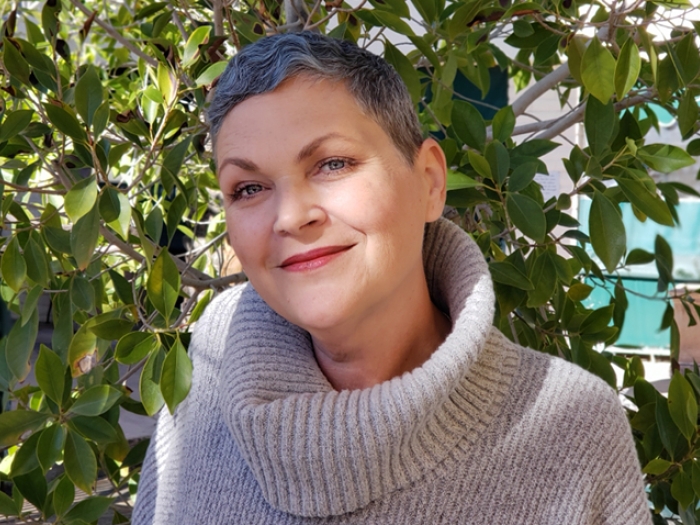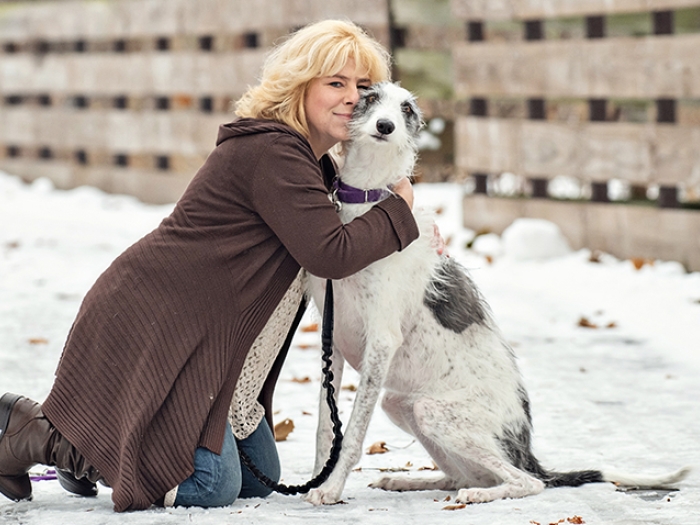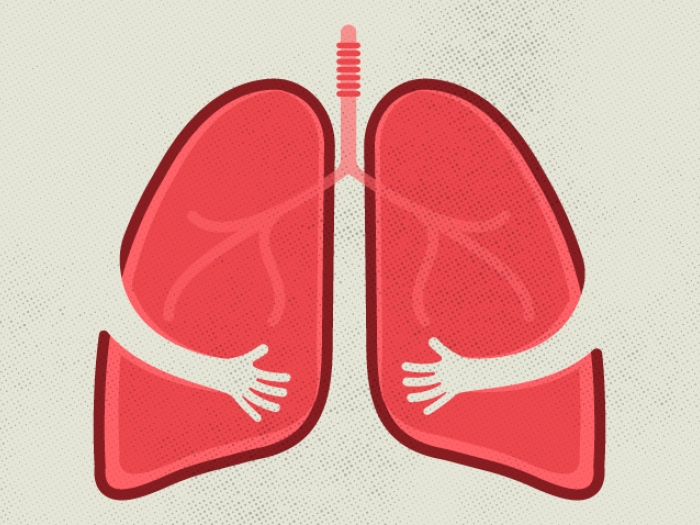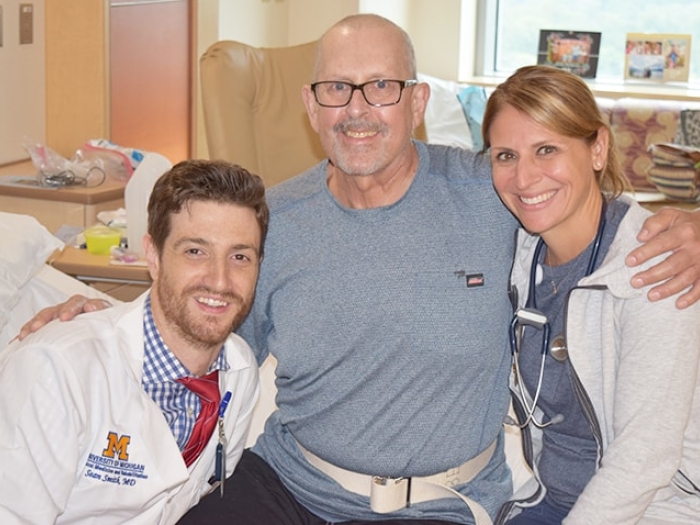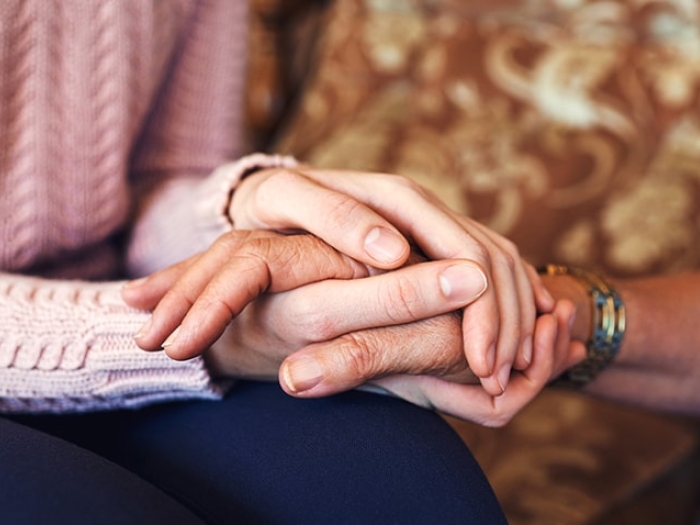Skilled musicians provide therapeutic power in a health care setting. Learn more about the unique artistic partnership.
1:00 PM
Author |
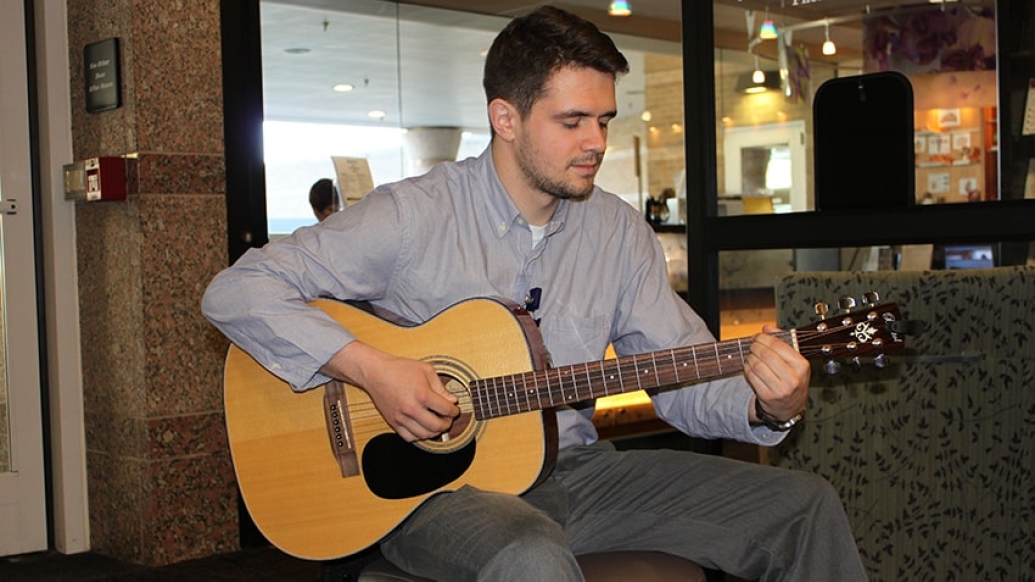
Music therapist Peter Carpenter knows that a pleasing melody to the masses offers special relief for those facing illness.
MORE FROM MICHIGAN: Sign up for our weekly newsletter
"Music can provide stability," says Carpenter, who shares his talents each week at the University of Michigan Comprehensive Cancer Center. "For outpatients, it can normalize a strange environment to reduce the anxiety patients feel. People don't know what to expect when they arrive here.
"There's a lot of uncertainty."
That's why music therapy is made available to complement standard medical treatment. It is provided at no cost to U-M cancer patients in individual and group settings.
Beyond their skilled artistry, those who serve are specially prepared for the job.
Board-certified music therapists have a bachelor's degree or higher, attend a college approved by the American Music Therapy Association and train for 1,200 hours with patients and health care professionals.
Healing notes
Carpenter, an accomplished musician and a certified therapist, typically plays guitar for Cancer Center patients and family members making their first stop of the day: the waiting room at blood draw.
SEE ALSO: Therapy Dog Brings Joy to Hospital Patients, One Wag at a Time
His goal, in addition to helping people cope, is to balance being soft enough to be pleasing and creating a relaxing ambiance.
Carpenter, who works in partnership with colleague Robert Huffman, also a certified music therapist, offers individual therapy sessions to cancer patients — as well as scheduled music therapy workshops.
Because listeners respond strongly to music they know, Carpenter has expanded his repertoire. He knows 98 songs based on patient requests.
Music therapy can have many benefits, from reducing stress and improving mood to helping manage perceptions of pain. It also can enhance memory, induce sleep and reduce anxiety and depression.
Two-part harmony
U-M patient Clint Lavens experienced those benefits firsthand.
Diagnosed with stage 4 bladder cancer in 2015, Lavens has incorporated music therapy into his cancer experience by meeting with Carpenter during treatments.
Beyond listening to the tunes, Lavens eventually brought in some of his own instruments, allowing the duo to make music together.
That quickly became a key part of the healing process.
"We hit it off right away. He was a really easy guy to talk to," says Lavens, himself a longtime blues musician. "I really like listening and performing, but mostly composing.
"I've been playing music for decades, but it has been very helpful in dealing with cancer."

Explore a variety of healthcare news & stories by visiting the Health Lab home page for more articles.

Department of Communication at Michigan Medicine
Want top health & research news weekly? Sign up for Health Lab’s newsletters today!
